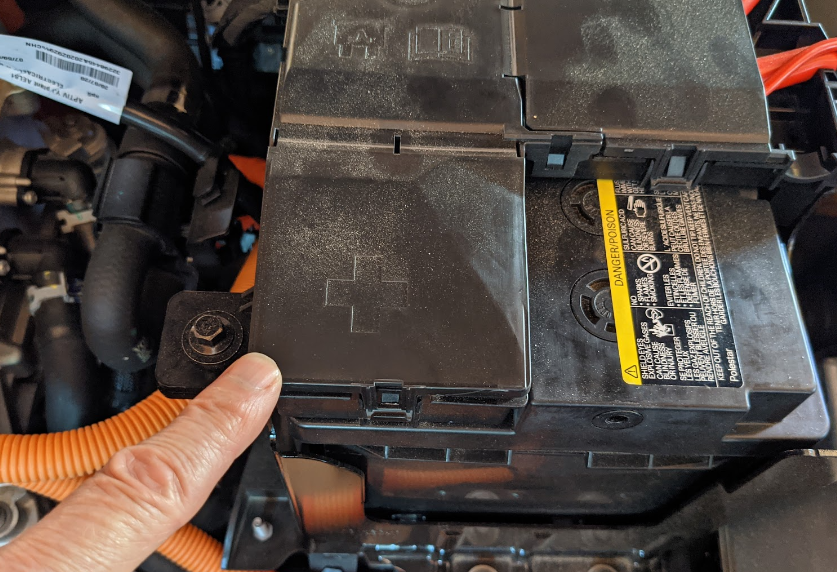Lithium Ion Battery: The Future of Energy Storage
소개:
In recent years, the demand for energy storage has increased significantly due to the growing reliance on renewable energy sources and the need to reduce greenhouse gas emissions. Among various energy storage technologies, lithium-ion batteries have emerged as a promising solution. This article will delve into the advantages, challenges, and future prospects of lithium-ion batteries as the future of energy storage.
Advantages of Lithium-Ion Batteries:
1. High Energy Density: Lithium-ion batteries have a high energy density, meaning they can store a large amount of energy in a relatively small and lightweight package. This makes them ideal for portable devices such as smartphones and electric vehicles (EVs), where compactness and weight are crucial factors.
2. Long Cycle Life: Lithium-ion batteries exhibit a long cycle life, which refers to the number of charge-discharge cycles a battery can undergo before its capacity significantly degrades. With proper usage and maintenance, lithium-ion batteries can last several years, making them cost-effective in the long run.
3. Fast Charging Capability: Compared to other battery technologies, lithium-ion batteries have a relatively fast charging capability. This is crucial for applications where quick charging is required, such as EVs, where minimizing charging time is essential to promote widespread adoption.
4. Environmental Friendliness: Lithium-ion batteries have a minimal environmental impact compared to traditional energy storage options. They do not emit greenhouse gases during operation, and the materials used in their construction can be recycled, reducing waste generation and promoting a circular economy.
Challenges and Potential Solutions:
1. Safety Concerns: One of the primary challenges associated with lithium-ion batteries is their safety. If not designed, manufactured, or used correctly, lithium-ion batteries can overheat, catch fire, or explode. However, extensive research and development efforts are continuously being made to improve battery safety through advanced thermal management systems, enhanced electrode materials, and better battery management systems.
2. Limited Availability of Raw Materials: Lithium-ion batteries require specific raw materials, such as lithium, cobalt, and nickel. The limited availability and geopolitical concerns associated with these materials pose challenges to the widespread adoption of lithium-ion batteries. However, researchers are exploring alternative materials and battery chemistries to overcome these limitations.
3. Cost: Despite significant advancements, lithium-ion batteries still remain relatively expensive compared to conventional energy storage options. However, the continuous improvement in battery technology and the scaling up of production are expected to drive down costs in the future, making lithium-ion batteries more economically viable for various applications.
Future Prospects:
The future of energy storage heavily relies on the development and advancement of lithium-ion batteries. As technology continues to evolve, it is expected that lithium-ion batteries will become even more efficient, safer, and affordable. Several key areas of development include:
1. Increased Energy Density: Researchers are working on developing battery chemistries that can store even more energy, allowing for extended ranges in electric vehicles and longer-lasting portable devices.
2. Faster Charging: Efforts are being made to enhance the charging speed of lithium-ion batteries further. This will reduce the time required to charge electric vehicles and make portable devices more convenient for users.

3. Improved Safety: The focus on battery safety will continue, with advancements in thermal management systems, solid-state electrolytes, and the overall design of lithium-ion batteries, ensuring safer operation and reducing the risk of accidents.
4. Sustainable Materials: To overcome the limitations posed by the availability of raw materials, researchers are exploring alternative materials and chemistries that are abundant, environmentally friendly, and economically viable.
결론:
Lithium-ion batteries have emerged as a frontrunner in the field of energy storage, offering a range of advantages such as high energy density, long cycle life, fast charging capability, and environmental friendliness. Despite facing challenges such as safety concerns, limited availability of raw materials, and cost, ongoing research and development efforts are expected to address these issues and pave the way for an even brighter future for lithium-ion batteries. With continuous advancements, lithium-ion batteries will play a pivotal role in enabling the transition to a sustainable and clean energy future.
-
 Lithium starter batteries are a relatively new technology that is rapidly gaining popularity among vehicle owners due to their numerous advantages over traditional lead-acid batteries. If you considering upgrading your vehicle battery, here are some of the benefits you can expect from a lithium starter battery. 1. Lightweight and Compact One of the most significant advantages of lithium...더 읽어보세요
Lithium starter batteries are a relatively new technology that is rapidly gaining popularity among vehicle owners due to their numerous advantages over traditional lead-acid batteries. If you considering upgrading your vehicle battery, here are some of the benefits you can expect from a lithium starter battery. 1. Lightweight and Compact One of the most significant advantages of lithium...더 읽어보세요 -
 As the world becomes more mobile and dependent on technology, the need for portable power has never been greater. From smartphones to electric cars, lithium batteries have emerged as the go-to solution for powering our devices on the go. In this article, we'll explore the history, science, and future of lithium batteries and why they are the future of portable...더 읽어보세요
As the world becomes more mobile and dependent on technology, the need for portable power has never been greater. From smartphones to electric cars, lithium batteries have emerged as the go-to solution for powering our devices on the go. In this article, we'll explore the history, science, and future of lithium batteries and why they are the future of portable...더 읽어보세요 -
 Introduction: Car breakdowns can be a frustrating and scary experience, especially if you're stranded in the middle of nowhere. In such situations, having an emergency starter battery can prove to be a lifesaver. In this article, we will discuss the importance of an emergency starter battery and how it can help you in times of need. What is...더 읽어보세요
Introduction: Car breakdowns can be a frustrating and scary experience, especially if you're stranded in the middle of nowhere. In such situations, having an emergency starter battery can prove to be a lifesaver. In this article, we will discuss the importance of an emergency starter battery and how it can help you in times of need. What is...더 읽어보세요 -
 The demand for reliable and efficient battery chargers has increased significantly in recent years. With the rise of electric vehicles, renewable energy systems, and other battery-powered applications, it has become crucial to have a high-quality charger that can provide the necessary power while also being energy-efficient and cost-effective. One such solution that has gained popularity among users is the 24V...더 읽어보세요
The demand for reliable and efficient battery chargers has increased significantly in recent years. With the rise of electric vehicles, renewable energy systems, and other battery-powered applications, it has become crucial to have a high-quality charger that can provide the necessary power while also being energy-efficient and cost-effective. One such solution that has gained popularity among users is the 24V...더 읽어보세요 -
 Lifepo4 배터리 팩은 다양한 응용 분야에 오래 지속되는 전력을 제공하도록 설계된 충전식 배터리 유형입니다. 이 배터리는 높은 에너지 밀도, 낮은 자체 방전율, 긴 주기 수명으로 잘 알려져 있어 전기 자동차, 가정용 에너지 저장 시스템 및 기타 산업 응용 분야에 사용하기에 이상적인 선택입니다. 그 중 하나는...더 읽어보세요
Lifepo4 배터리 팩은 다양한 응용 분야에 오래 지속되는 전력을 제공하도록 설계된 충전식 배터리 유형입니다. 이 배터리는 높은 에너지 밀도, 낮은 자체 방전율, 긴 주기 수명으로 잘 알려져 있어 전기 자동차, 가정용 에너지 저장 시스템 및 기타 산업 응용 분야에 사용하기에 이상적인 선택입니다. 그 중 하나는...더 읽어보세요 -
 소개 최근 몇 년 동안 무선 기술은 우리 삶의 다양한 측면에 혁명을 일으켰으며 컴퓨터 주변 장치 분야도 예외는 아닙니다. 리튬 배터리로 구동되는 무선 키보드는 사용자를 코드의 제약으로부터 해방시키고 향상된 타이핑 경험을 제공함으로써 게임 체인저로 등장했습니다. 이 기사에서는 이러한 키보드의 장점과 키보드가 점점 더 많이 사용되는 이유를 살펴봅니다.더 읽어보세요
소개 최근 몇 년 동안 무선 기술은 우리 삶의 다양한 측면에 혁명을 일으켰으며 컴퓨터 주변 장치 분야도 예외는 아닙니다. 리튬 배터리로 구동되는 무선 키보드는 사용자를 코드의 제약으로부터 해방시키고 향상된 타이핑 경험을 제공함으로써 게임 체인저로 등장했습니다. 이 기사에서는 이러한 키보드의 장점과 키보드가 점점 더 많이 사용되는 이유를 살펴봅니다.더 읽어보세요 -
 As renewable energy sources continue to gain popularity, the demand for high-capacity, efficient, and long-lasting battery packs has become increasingly important. One such battery pack that has been making waves in the market is the High Capacity 12V 100Ah LiFePO4 Battery Pack. LiFePO4, which stands for Lithium Iron Phosphate, is a type of lithium-ion battery that is widely regarded...더 읽어보세요
As renewable energy sources continue to gain popularity, the demand for high-capacity, efficient, and long-lasting battery packs has become increasingly important. One such battery pack that has been making waves in the market is the High Capacity 12V 100Ah LiFePO4 Battery Pack. LiFePO4, which stands for Lithium Iron Phosphate, is a type of lithium-ion battery that is widely regarded...더 읽어보세요

